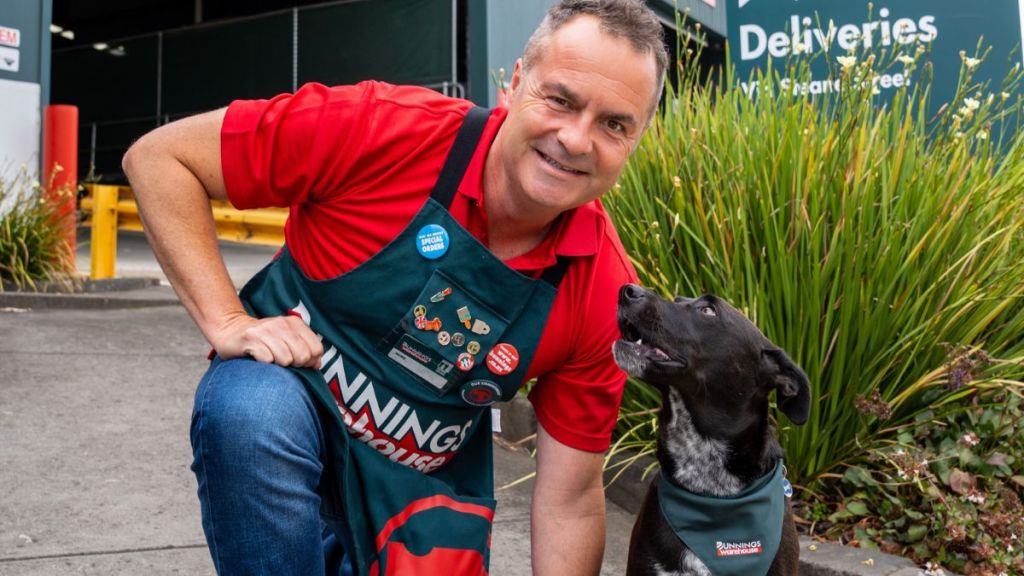‘Go along with it’ or get out: Bunnings accused of exploiting power over plant growers

Source: TND
As an inquiry into the market power of big supermarkets captures Australia’s attention, plant growers say retail giant Bunnings should also be in the spotlight.
The Senate committee examining the supermarkets has heard from farmers who say the big chains refuse to pay enough for produce to meet rising production costs, leaving many farms struggling to stay afloat.
With a combined market share of about 65 per cent, Coles and Woolworths have a duopoly in the supermarket sector.
But it’s not the only area where a handful of players control an outsized portion of the Australian market.
Joanna Cave, CEO of Greenlife Industry Australia (GIA) – the peak body for plant and nursery retailers – said Bunnings had a near-monopoly in the sector with a 70 per cent market share.
The claim, along with many of GIA’s allegations, is steadfastly denied by Bunnings.
Cave said Bunnings used its power to push unfair arrangements on plant growers, as did other “big-box plant retailers” such as Mitre 10 and Ikea.
At the supermarkets inquiry earlier this week, she urged the government to extend the Food and Grocery Code of Conduct to major plant retailers to prevent abuse of market power.
“Within that code, plants are defined as a grocery,” she told The New Daily.
“While supermarkets do sell plants, by far the bigger retailer of plants is Bunnings … [which is] certainly equivalent to supermarkets in scale and presence in the Australian market.”
Fear of payback
Cave refused to identify specific growers, saying they had spoken to GIA on condition of anonymity due to fear of retribution from Bunnings, which many rely on to sell their products.
She said growers were also unlikely to use Bunnings’ anonymous supplier complaints procedure, because they feared being identified and punished.
But Cave was able to tell their stories, which shared a common thread of an industry beholden to a retail behemoth with little to no leverage for negotiation.

Australians love to have plants at home, but suppliers are under pressure. Photo: Getty
A common complaint was that Bunnings would not commit to buying specific volumes of plants from growers.
“I’ve seen supplier agreements in which Bunnings’ commitment is articulated as one single plant,” Cave said.
“In the case of that grower who relies on Bunnings to be in business, he grows thousands of plants for them, but all Bunnings is obliged to do is buy one single plant from him.”
Losing money on sales
Growers also claimed Bunnings exerts downward pressure on prices – and refuses to pay more even when faced with evidence of higher production costs such as rising labour or energy costs.
Cave said two growers had told her they were forced to close their respective businesses because Bunnings refused to pay them enough to stay afloat, let alone be profitable.
One grower was paid $1.05 per plant; after production costs rose, he worked out he was losing 25 cents for every plant the big chain bought.
Bunnings, which sold the same plants for $3.95, rejected his request for a 25 cent increase.
After the grower closed his business, he saw Bunnings had increased its sale price of the same line of plants by 25 cents.
Cave said growers also faced further costs when Bunnings pressured them to use its preferred freight arrangements – sometimes at more than double the cost of previous arrangements.
Bunnings also allegedly insisted plants were repackaged in generic black pots with the chain’s branding.
“That denies growers the ability to … market some of their advantages,” Cave said.
“For example, if they’ve invested in best-practice accreditations or if they have specialised in sustainable growing methods, they can’t market any of those competitive advantages because their products are sold as Bunnings products.
“There’s a lot of examples that would be in breach of a code of practice, if Bunnings was covered by a code. As they’re not, growers have no choice; they either go along with it, or they’re out of business.”

Mike Schneider. Photo: Bunnings
Bunnings sees no need for change
Rather than the market domination claimed by Cave, Bunnings estimates its share of the plant retail market share is less than 30 per cent, based on IBIS World 2024 data.
Managing director Mike Schneider told The New Daily that the Food and Grocery Code of Conduct should not apply to the hardware chain.
He said Bunnings had “robust processes” to ensure relationships with its 250 suppliers were “fair and transparent”.
“While we respect the role industry associations like Greenlife Industry Association play, we disagree with a number of claims they’ve made and have reached out to them to discuss these matters and better understand the details further,” he said.
“Given the very broad range of products and services Bunnings offers to both consumer and professional customers, as well as the diverse and highly competitive market in which we operate, we don’t feel that the [code], which was introduced to address concerns in the supermarket industry, is specifically relevant to our business as currently drafted.”
Mitre 10 and Ikea have been contacted for comment.








